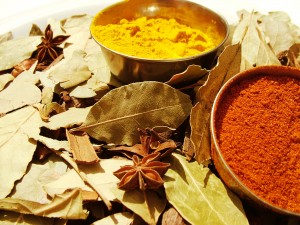The recent detailed U. S. national report on cancer (released every two years) revealed that despite the billions of dollars poured into cancer research and innovative treatments, current approaches are not delivering on their promise of a cure. In fact, progress against the disease is excruciatingly slow, and much of the decline in cancer deaths in the U. S. is the result of decreases in smoking, not cutting-edge technological treatments.
After 25 years of research and working with thousands of people with cancer, I am convinced that the search for a “magic bullet” that will cure or eradicate cancer is misguided. As long as we continue to focus primarily on eradicating cancer, we are missing the bigger picture—the terrain in which cancer evolves.
Scientists agree that our genes predispose us to various diseases, such as cancer. The good news is the choices we make on a daily basis—including the foods we eat, the toxins we’re exposed to, how much exercise we get, and how we handle stress—appear to be the strongest predictors of whether or not we will develop a disease such as cancer.
To create a lifestyle that will help protect you from developing cancer, it’s important to know how cancer arises. Our bodies generate cancerous cells throughout our lives. When you consider that millions of cells are being replaced every second, it’s not surprising that anomalies sometimes occur, resulting in the formation of malignant cells. Environmental toxins, radiation, viruses and other physical irritants are some of the factors that can alter DNA molecules within a cell (DNA is like a cellular blueprint that tells each cell how to reproduce).
These altered cells don’t abide by normal cell rules. They reproduce more rapidly than the cells from which they originated and bear little resemblance to the original cells. Unlike normal cells, they invade neighboring tissues and spread to other areas of the body. As they multiply, they form tumors, destroying healthy tissue in the process and interfering with organ function.
Fortunately, every cell mutation doesn’t result in cancer because the immune system searches out and eradicates cells that have gone astray. Specialized white blood cells are constantly on patrol, looking for cancerous cells. When they find an abnormal cell, they engulf and destroy it before it can reproduce. In addition, any cell that begins to multiply out of control is programmed to commit suicide in a process called apoptosis. For cancer to arise, the immune system has become overwhelmed. Therefore, the best way to prevent cancer is to take specific steps to keep your immune system functioning optimally, and to avoid the environmental and dietary stressors that can trigger cell mutations.
Many positive choices within your control can create a healthful lifestyle that will strengthen your immune system:
- Avoid environmental toxins. Every exposure to toxins increases the possibility of malignant cellular changes. Buy organic foods, use filtered water and avoid using toxic chemicals in your home and garden. Don’t use tobacco in any form, and stay away from secondhand smoke.
- Reduce your exposure to radiation. This includes diagnostic X-rays, unless they are absolutely necessary. Radiation causes damage to DNA that is cumulative over a lifetime.
- Treat infections promptly. Lingering infections tax the immune system and can inhibit immune function.
- Eat a nutrient-rich diet. Nutrient deficiencies are a significant cause of depressed immunity. Base your diet on fresh vegetables and fruits, high-quality protein foods, complex carbohydrates, and monounsaturated and omega-3 fats.
- Don’t overdo alcohol. If you are going to drink, the best choice is organic red wine, which has proven health benefits.
- Exercise regularly. Physical activity enhances immune function, normalizes gene expression (adipose genes in particular), helps to maintain healthy hormone signaling (insulin, estrogen, testosterone), and stimulates circulation of blood and lymph, which improves detoxification. Regular exercise (four hours or more per week) has been shown to lower the risk of several types of cancers, reduces the recurrence of cancer, and significantly increases the quality of life and lifespan of those with cancer.
- Get plenty of sleep. Allow for sufficient sleep, and make sure you sleep in total darkness, because light decreases your body’s production of the hormone melatonin. Low levels of melatonin are associated with an increased risk of cancer.
- Reduce stress. Emotional stress stimulates the secretion of adrenal hormones, including adrenaline and corticosteroids, which have a suppressive effect on immunity. Practice some form of stress reduction every day, such as meditation, deep breathing exercises or yoga.
The foods you choose to eat can significantly lower your risk of cancer. The following steps will help you create a diet rich in protective nutrients:
- Choose healthful fats. Diets high in saturated fats, polyunsaturated oils and hydrogenated oils greatly increase cancer risk by generating large numbers of call-damaging free radicals. However, monounsaturated fats, such as extra-virgin olive oil, protect your cells against cancer by making cell membranes more resistant to the destructive effects of free radicals.
- Include omega-3 rich foods. Omega-3 fatty acids assist in the regulation of hormone-like compounds called prostaglandins (PG), decreasing PG2, which is pro-inflammatory, and having an overall anti-inflammatory and anti-cancer effect. Cold-water fish such as salmon, mackerel and sardines are rich in omega-3 fatty acids; flaxseeds, rich in alpha linolenic acid, are a good vegetarian source. Flax seeds are not nearly as good as fish oil (rich in EPA and DHA), however they contain an array of other cancer inhibiting compounds including lignans. Eat two to three servings of cold-water fish weekly, and/or one tablespoon of freshly ground flaxseeds daily. I recommend adding 1 to 1.5 tsp. of essential fatty acids and 1-2 tbsp. of ground flax seeds to a daily smoothie.
- Eat plenty of fiber-rich whole foods. Fiber (found in whole grains, legumes, vegetables, and fruits) helps move wastes more quickly through the intestinal tract, shortening the time toxins remain in the body. Try to eat about 35 grams of fiber daily.
- Drink tea. Tea (black, green, white, and oolong) contains antioxidant compounds called polyphenols, which prevent damage to DNA.

- Eat garlic and onions. Members of the allium family, including garlic, onions, scallions, leeks and chives are rich in the antioxidant mineral selenium, enhance immune activity and bolster enzymes that break down carcinogens.
- Consume cruciferous vegetables. Broccoli and its kin—cabbage, cauliflower, collards, bok choy, kale, mustard greens, watercress and Brussels sprouts—contain compounds called indoles that stimulate the production of enzymes that neutralize carcinogens and speed their removal from the body.
- Boost your intake of carotenoids. Carotenoids are antioxidant compounds that neutralize free radicals, improve immune function and help reverse precancerous changes in cells. Good sources include deep-orange vegetables and fruits, such as carrots, sweet potatoes, winter squashes, cantaloupe and apricots; and dark-green vegetables such as broccoli, collards and kale. Tomatoes, watermelon, and red peppers are rich in lycopene, a carotenoid that lowers the risk of prostate cancer and other cancers.
- Enjoy fruit. Grapes, strawberries, raspberries, grapes, and apples are excellent sources of ellagic acid, a phytochemical that inhibits the enzymes that fuel cancer growth. Citrus fruits are rich in vitamin C, which helps prevent free radical damage. Oranges, lemons and limes also contain a phytochemical called limonene, which increases enzymes that break down carcinogens.
- Season liberally with herbs and spices. A wealth of protective compounds is found in herbs and spices. Some of the most powerful are those in the Lamiaceae family (basil, mint, oregano, rosemary, sage and thyme) and those in the Apiaceae family (caraway, cilantro, coriander, cumin, dill, fennel and parsley). Turmeric and ginger, both members of the Zingiberaceae family, help protect cells from oxidative damage and inhibit the inflammation that can initiate cancerous cell changes.
- Be sure to take vitamin D with vitamin K. I recommended having your levels checked and supplementing accordingly. Otherwise, take 1000-2000 IU’s per day with at least 150 mcgs of vitamin K. Low levels of vitamin D are associated with an increased risk of most cancers.
Supplement with herbal adaptogens. Adaptogenic herbs are the most effective way of enhancing overall health, improving cellular energy, adaptation, and protecting the body from the onslaught of stressors we are exposed to on a daily basis that disrupt our endocrine system and cause cellular damage. Some primary adaptogens that have documented cancer preventive actions include:
- Ashwaganda (Withania somnifera) is one of the most important herbal tonics in Ayurvedic medicine. Often referred to as “Indian ginseng,” ashwaganda strengthens overall vitality and has been shown in studies to have immune-enhancing and anticancer effects.
- Eleuthero (Eleutherococcus senticosus), also called Siberian ginseng, improves endurance for both physical and mental tasks. Many studies have shown the herb increases resistance to stress; it helps neutralize free radicals, enhances immune function and fortifies the adrenal glands to better cope with stress.
- Asian ginseng (Panax ginseng) helps the body adapt more easily to physical and emotional stressors by enhancing the performance of the hormonal system, especially adrenal function. Ginseng has also been shown to have immune-boosting and anticancer properties.
- Schisandra (Schisandra chinensis) has been valued for centuries in Chinese medicine for its adaptogenic properties. It improves both physical and mental functioning; it also protects against cellular damage and enhances detoxification.
Some of the secondary adaptogens that I recommend include:
- Astragalus (Astragalus membranaceus) is used in Chinese medicine to bolster the protective energy of the body. Clinical studies show astragalus stimulates white blood cell activity and increases the production of interferon, both vital components of the immune system.
- Reishi
- Cordyceps
 I also recommend adaptogen companions, which assist other antioxidant compounds (vitamin and mineral) by recycling antioxidant nutrients that have been oxidized or “spent”, allowing them to continue their redox cycling effects. These herbal extracts are able to induce cellular repair and recycling. Some of the adaptogen companions that I recommend include:
I also recommend adaptogen companions, which assist other antioxidant compounds (vitamin and mineral) by recycling antioxidant nutrients that have been oxidized or “spent”, allowing them to continue their redox cycling effects. These herbal extracts are able to induce cellular repair and recycling. Some of the adaptogen companions that I recommend include:
- Turmeric Turmeric (Curcuma l.)95% curcumoids
- Green tea (Camellia s.) 95% polyphenols, 60% catechins
- Grape seed/skin (Vitis v.) 95% OPC’s in the seed, and total polyphenols 30% in the skin
- Rosemary ((Rosemarinus off.) 6% carnosic acid, 1% rosemarinic acid, and 1.5% ursolic acid
As an easy way of obtaining a wide variety of powerful immune enhancing, cancer fighting nutrients and compounds, I recommend a daily smoothie fortified with multi-vitamins & minerals, herbs, non-denatured whey protein, essential fatty acids, fruit anthocyanins, and organic greens & fruits.


This is a great guide Donnie. Thank you!
Dear Dr. Yance
Would you use the above protocol if you already have cancer? I have lung cancer but am in recovery.
Thank you
Valerie
Hi Valerie, we sent you a direct email regarding your question. Thank you for following Donnie’s blog.
I have a hx of breast cancer (3years ago) & now a recurrent Granulosa Cell Tumor that has spread to my Liver
I am facing a life time of chemo Doing many of the things u suggest – diet, juicing, supplements, alkaline water, etc for years with more vigilance since 2009
I really don’t know where to go from here
Any suggestions?
Hi Barbara, I have sent a response to your email. Thanks!